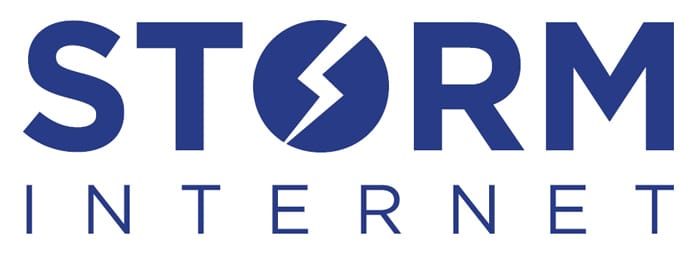
What are the biggest threats to your business?
As the world limps on and businesses in the UK contend with the challenges of another period of lockdown, B4 members representing the Business Services, IT & Communications Hub marked Data Protection Day on Thursday 28th January 2021 by discussing what the major threats were to their businesses. With thanks to Darren Aston (Aston & James), Neill Lawson-Smith (CIS Ltd), Paul Ballinger (STL Communications), Salim Benadel (Storm Internet) and Kellie Peters (Databasix).
For Darren Aston, owner of Witney based office supplies company, Aston & James, the shift to businesses operating from home poses communication and operational threats to his business. “The centre of gravity shifting for us, with everyone working from home and not being able to be in

front of our customers, are our main issues. Not every customer at home is thinking of Aston & James when they need to order something. In the office, everyone has a defined role, on the whole, but at home, everyone starts to fend for themselves to a certain extent. That means long-established relationships are being eroded, through nobody’s fault in particular, it’s just the way we’re all having to adapt to a different way of working.
“All we can do is replay the record, remain visible as much as possible…we can play that
record every day but not everyone is listening because they have so many other challenges. Everyone is juggling and spinning plates and they’re looking for quick solutions which often means going on-line and ordering from Amazon most of the time.
“The other key threat is the cost of operating. Whereas before we could make one hundred deliveries to one location, we’re now potentially making single deliveries to hundreds of locations. We’re not Amazon and we don’t pay 50p a parcel, we pay a driver his salary, we have our own vehicles, our own delivery team and have to maintain all of that. It’s vital we optimise that local message all of the time to protect businesses, jobs and the environment.
Neill Lawson-Smith, owner of Faringdon based Managed IT services provider, CIS Ltd, agrees with Darren. “Spot on Darren. People will buy a lot off Amazon without any idea of the bigger picture. We are often having to help them out with undoing things they have done, quite innocently. We have set up fairly detailed plans for customers and if they alter the set up (change broadband at home for example) it can have problematical implications. Even just plugging in a new set of headphones can have an effect.
“Again, it’s nobody’s fault, as Darren said. It’s far more stressful for the person at home if IT goes wrong – there’s nobody to physically go to to sort it out and if they’re relying on malfunctioning IT to speak to their IT department, then they’re really on their own….at least if your PC goes down in the office you can walk to the IT department, that’s just no longer possible!
“I’d say there is a danger we could lose business because people search independently for their own solutions, but it’s also been a good opportunity for us to step up. For example, we have picked up a few sizable support contracts where we’ve been able to demonstrate what else we can do. Companies that had 70 or 80 staff for an IT manager to look after are now looking to us to take that role over, a role which is much harder for the IT manager to perform remotely.

“We’ve spent a lot of time telling customers what else we can do so communication has been key for us.”
For Salim Benadel of Cassington based Storm Internet, communication is now key. “We definitely didn’t tell our customers enough about what we did, but in recent weeks we’ve focused on making sure our customers know all about our services.
“One big threat to us is losing key contacts that have changed companies. We’ve lost a few contracts where someone else has come in to fill our contact’s role and then chosen another supplier as they have their own way of doing things and don’t know us. But on the flip side we’ve also benefited in the same way when someone has left to go to another company as due to the good relationship we had with them, they’ve continued to use us and placed even more business with us via their new company.”
“The ongoing threat to our customers is hacking, but that’s another reason to need us in the first place – without hackers we might not even be in business!
Salim Benadel
I find that there are swings and roundabouts or a yin and yang to everything. So, if you can continue to find opportunity in adversity, you’re usually fine and will continue to thrive.”
On the subject of cyber security, a threat to all of us, Neill adds, “SME’s don’t appreciate the threat to their businesses as much as they should – the threat to business is huge and does force businesses under. This is the perfect time to focus on underpinning resilience.”
Paul Ballinger, of Witney based IT and communications specialists, STL, concurs, “I was on a webinar recently and it was very well attended – the topic was cyber security. One of the speakers posed the question “if you insure your car, would you leave it with all the doors open in a car park?” The speaker’s right….we can protect our businesses to the hilt but if one person clicks the wrong button or the wrong link, the results can be catastrophic for a business. Working remotely, it’s even harder to keep control of things going wrong. All sorts of things are being used by hackers to get into our systems – fake COVID test results, grants etc….


“We don’t want to sell by fear, we just need to use platforms like B4 to educate and raise awareness of the implications of this sort of behaviour…and let’s face it, hacking is only going to get worse.
Paul Ballinger
If we were in the office and you had something odd on your e-mail, you might just turn to a colleague and ask if something is right. Now, we might not be bothered to contact that colleague remotely and just open the e-mail…and then the problems begin. We’re playing into the hackers’ hands.”
Salim adds it’s easier to detect a hacker than you might think. “It’s easy to detect if something is a threat but you have to know what you’re looking for…..just hover over the link before clicking it for example to see where it’s trying to take you. If the domain name ends in something like “.ru”, “.cn”, something outside of the UK or, just doesn’t appear to tie with the company apparently sending the mail, then it’s probably a hack. But I’m used to it…your average employee may not know about checks like this.”
Kellie concluded the cyber threat angle by adding. “At the early stages of the pandemic the biggest threat to Databasix UK was from customers reducing their spend on training and data protection support, as their focus was to set up and adjust to their staff working from home. In turn the threats to our customers came from implementing new technology, for example to monitor staff working at home or to migrate to a new cloud-based solution, yet not consider the data protection risks, such as security and location of data.
“Paul referred to Cyber security and cyber-attacks being a key consideration, I would agree with this point. Organisations are faced with the challenge of dealing with the increase in ransomware attacks, in fact 31% of all insurance claims related to a ransomware attack. As well as this, there was a significant increase in COVID-19 related phishing emails, Google has estimated that 18 million COVID phishing emails are sent every day! Where budgets are strapped and survival mode has been activated, asking organisations to invest in online virtual training to reduce the risk of data breaches is a much bigger hill to climb. Though, one of the outcomes from 2020 that I am most proud, is our ability to convert our face-to-face training to be delivered online.
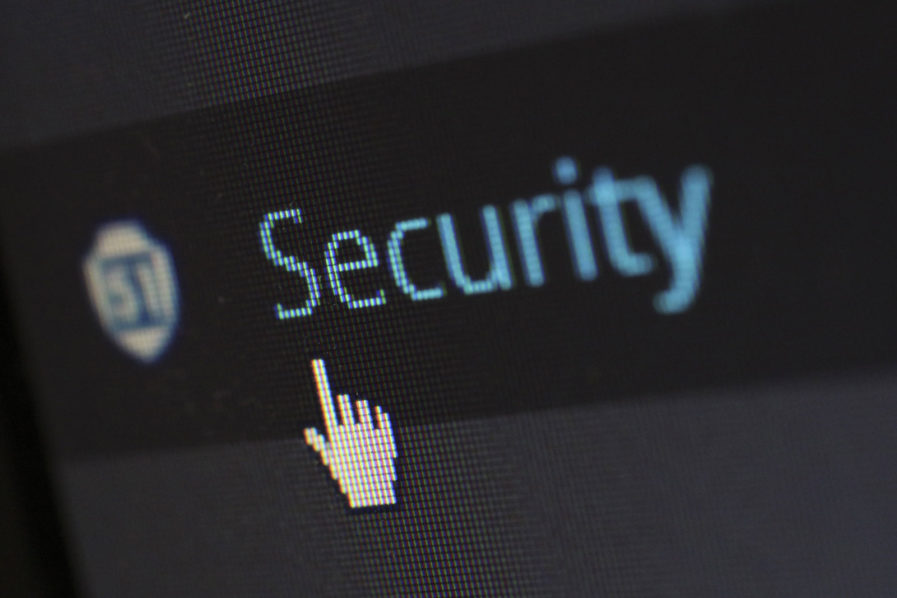
“Neill highlighted a really good point, IT Managers within organisations are now stretched to capacity due to the geographical locations of staff, and this has led to opportunities for new contracts. This is also the case for individuals that have been given the role of data protection lead or data protection officer, they now need to more regularly communicate with staff/team members and encourage them to report any breaches that happen whilst at home, whilst regularly communicating about the practical ways of working that is in line with data protection best practice.
Like CIS, this has been an great opportunity for us to launch our GDPR Toolbox to support the often overworked data protection heroes within organisations.”
Neill Lawson-smith
Moving away from cyber security, Darren focuses on the knock-on effects of families having to home-school. “We have to be understanding with our staff as many have children they need to home-school. Juggling work and home-schooling is a major issue. I work at home and I get all sorts of distractions – we all have to have realistic expectations of our staff and not let these unusual circumstances create friction, having said that, the longer this goes on, the more we’re going to have to adapt and some businesses might be less forgiving in the future.”
The whole area of personal contact is a huge loss for many. From general customer contact, to meeting new customers and suppliers, even hiring new staff…..if you’re recruiting virtually, chances are that person will be working remotely so you’ll be employing someone you’ve never met…and might not meet for some time. The level of trust you have to invest in people you know is difficult enough, let alone someone you don’t know and that’s a massive threat to your business.


Neill agrees, “Personal contact is a huge thing for me. “We all love meeting customers and we all miss our social engagements through B4 and we all like to be with our customers. As entrepreneurs, that’s a huge loss. There’s a depth of relationship that is difficult to replicate on zoom. In real life you shake someone’s hand, look them in the eye…you form a bond!”
Paul believes we’ve been deprived of a sense we never knew existed. “It’s like someone has taken a sense away from us, even though it’s a sense that didn’t exist. When you walk into someone’s business you get a feeling about that business, about the people….there’s something you can build a relationship on. They used to say you could tell a lot about a business by its toilets!”
Seizing on Paul’s dry Northern humour, Salim agrees. “You’re spot on Paul!!! I use that on restaurants – if they’re awful then I assume the kitchen’s the same and don’t go back!”
Both Paul and Neill feel we’re losing the connection and we’re making less effort, Paul making the point relating to back-to-back zoom calls. “You don’t spend as much time on zoom calls as you would with someone face to face…it’s always rushed, there’s less chit-chat. We’ve been gifted more time but I’ve no idea where it goes. We’re not investing that time as wisely as we should or could.”
Neill added, “We’re all dressing down more so I fear our personal standards are declining. When you go into the office there’s a mental transition, you’re sharper. When you work from home there’s no cut-off, there’s no separation and that’s dangerous in my opinion.”
Salim backs up Neill’s point. “There is a disconnect working from home. When I started Storm a few years ago I worked out of the spare bedroom and was going downstairs for lunch…it was all too close. I now come into the office so my head knows I’m in a workspace. I really believe that working from home can be massively detrimental to performance, but it really depends on the individual.”
STL have embraced the concerns of its staff who were really struggling with working from home, explains Paul. “Although our office is closed, it is open for some staff. We had some coming to us saying they couldn’t get on with working from home so we’ve now facilitated some staff working from the office. They’re hugely grateful to us even though we’ve given them nothing….just something they had before. They now have clear separation in their day and their productivity is enhanced.”
Staff wellbeing has obviously been a huge issue, not just in the workplace, but Neill turned the conversation to focus on mental health. “It’s huge…for the older generations who are used to working in the office, to have that taken away from them is hugely impactful. It’s the younger generations who are maybe more adaptable to the new way of working who are coping better, although they too have the other challenges associated with restrictions of freedom. Not everyone can adapt to the new way of working and some are never going to adapt.”
Paul added, “It’s that younger generation that need almost constant contact with social media, music and other stimulants that you have to worry about more in my opinion. They’re our future but now working from home, how do we know how productive they are? There’s a huge trust investment here on behalf of the employer. We did some coaching with staff in December which showed confidence gaps, ability gaps, social gaps, appearance gaps, all sorts of gaps. You’ve still got 12 seconds to accept or reject another human being as you had before. Not all of our staff are at the same level so we have to continue supporting them. We have to adapt to what they prefer. The same goes for customers – some might not like revealing themselves on screen which makes it even harder to connect.
“Technology can limit someone’s opportunities if they haven’t got to grips with it – unreliable connection, not knowing how to come across on video calls, walking around on a mobile phone in portrait which can be frustrating and hinders an engaging conversation….poor technology adoption can stifle someone’s career.”
One constant running through the group is how they’re all working longer hours than they ever have, without necessarily reaping the rewards. It’s that personal resilience and the need to keep going which is a fear Darren shares with the rest of the group. “ One of the important things about resilience is recharging between busy working days. We seem to be ‘plugged in to the matrix 24/7’. We need to be able to switch off and recharge and not permanently endure what we’re all going through. There has to be an ‘off-switch’.
Neill’s closing comment raised an interesting point. “It’s interesting how the conversation has morphed. Ultimately we are all human and we’re discovering chinks in our businesses. We’re focusing more on people now than ever and less, interestingly, on technology.”
The last word went to Paul, “Isn’t it always about being appropriate with our customers and our teams, people that work tirelessly every day and support us? We look back at the genuine euphoria of the B4 netwalking event at Blenheim Palace before Christmas…nobody left when it finished, they just wanted to talk. It was brilliant. It’s about being appropriate now, it’s how you position yourselves to make sure you’re there all the time, not just when you want to sell. It’s about getting to know your customers more so you can reach out genuinely with the right message at the right times. It’s conversations like this that I find fascinating because people still have a sense of worth and it’s what makes business invaluable. We wouldn’t have spoken this freely on topics like this back in February last year…we would have listened and pinched bits off each other…..now there is a huge appetite to help one another and a community like B4 is the perfect environment for that.”
More in IT Services

Get Support Announced as B4’s Official IT Partner
We are delighted to announce that Oxfordshire’s leading IT Services provider, Get Support, have become B4’s Official IT Partner.

Guiding the Development of AI Systems
Guiding the Development of AI Systems Artificial Intelligence (AI) continues to transform how we live, work, interact and access services. There is potential for it to bring multiple benefits to the global population. However, this is balanced by significant concerns that AI systems could turn into a sci-fi nightmare. So, how can AI development be […]
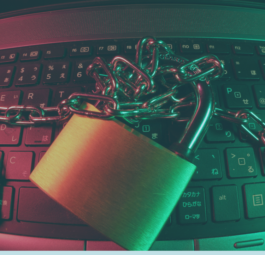
Your Business Without IT
You are invited to take a moment to visualise what would happen if your IT infrastructure went down, your customer and supplier data was stolen and your intellectual property was compromised. With denied access to your systems and information, operations will come to an immediate standstill. Financial demands are made and there’s a risk that […]
From this author
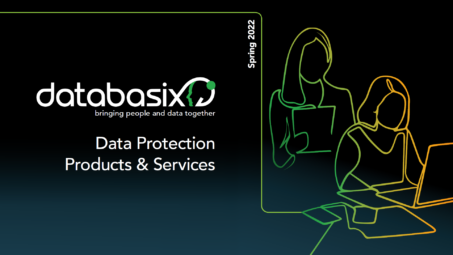
A look into the future for your data protection: The new...
The Databasix team takes a proactive approach to supporting our clients and to make ‘good’ even better… that’s the premise for our Spring Catalogue 2022!

Meet the Women Behind Databasix UK Ltd
In celebration of International Women’s Day, we wanted to take the opportunity to celebrate Kellie Peters & Regina Johnys, the women behind Databasix UK who have been described as ‘totally awesome data chicks.’ Here is an excerpt from a humourous Q&A the two took part in Firstly, congratulations on being called ‘totally awesome data chicks.’ […]
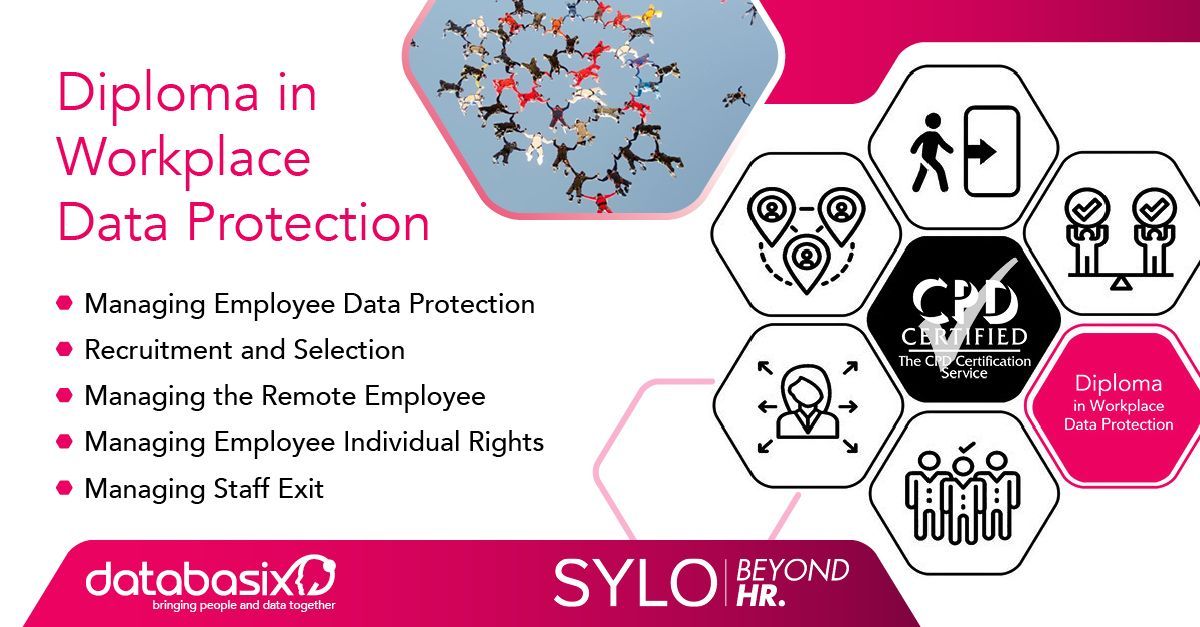
Diploma in Workplace Data Protection Starts 20th January 2022 – Register...
20th January 2022 – A GDPR Training Programme and Diploma for HR Professionals. In collaboration with SYLO | Beyond HR. , we are delivering a programme of CPD certificated data protection training, that’s tailored especially for people who lead or manage Human Resources functions. Data protection runs deep through every fibre of the HR environment. In times […]




